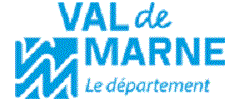Why it makes a difference: Gender and Climate Change at COP11/MOP1
Results from the conference in Montreal
31.01.2006 |Ulrike Roehr/Minu Hemmati
A variety of different activites were/are organised aiming to draw more attention to gender aspects in climate change. This strategy was based on three pillars:
I. Awareness raising and disseminating information via an exhibition booth ‘gender – justice – climate’ and two ‘Climate Talk’ events,
II. Women’s meetings to build capacity and strategise on how to integrate gender, and
III. A research workshop aiming to develop a future research agenda and initiate a gender and climate change network.
Awareness raising
A growing interest in gender aspects of climate change became evident at the booth: many participants took away lots of material. Not all, but some of them were really interested in learning more, asked in-depth questions and engaged in discussion. Although there are some gender differentiated results of research and experiences, eg from climate change adaptation projects and especially from community based disaster management, the most conspicuous lack is the one on good practise. Therefore, one of the ‘lessons learnt’ from these discussions should be to work towards a compilation of good practise/projects. As the article is written during the COP, reactions to the ‘Climate Talk’ events cannot be reported yet. They will take place at the second to last day of the conference. ‘Climate Talks’ are web-cast via the UNFCCC website and are aiming to explain specific issues to the broader public . This year’s common theme for all talks is “Time for Action”.

A demonstration during the conference
In our view, this can be interpreted as a call for gender mainstreaming into the negotiations. And that’s why we asked for two slots: One talk given by the authors of the article focussing on some examples of why it makes a difference to address gender in climate change. The other one given by the chairs of the ‘Network of Women Ministers for the Environment’ (Swedish Minister for the Environment, Lena Sommestad, and South African Deputy Minister for Environment and Tourism, Rejoice Mabuda-Fahsi) talking about action they are taking in their countries.
Capacity building and strategising
The strategy meetings also generated a lot of interest. In the first meeting, participants expressed their need for clarifying details of the UNFCCC process, and we focused on discussing the basics of the UNFCCC process and explaining some of the decisions that were on the agenda at COP11/MOP1. The lesson learnt from this situation is that a capacity building workshop should be held before or at the very beginning of the next COP. However, by the second strategy meeting in the beginning of the second week of the conference, we worked on recommendations and demands that women would want to put to negotiators.
Issues raised included the need to broaden the debate and place it firmly into the context of sustainable development, peace and justice, as well as raising the numbers of women on delegations and in decision-making positions. The group decided to work on a brief statement / position paper and possibly ask for a speaking slot towards the end of the conference. In case such a request cannot be granted due to lack of time, such a statement could also be disseminated among delegates in written form. ). For the next COP, we are planning to ask for a room for daily Women’s Strategy Meetings.

The climate and gender justice booth.
Research agenda
One starting point of the women’s activities at COP11/MOP1 is that there are considerable gaps in research on gender & climate change, which impact the ability of the global community to appropriately and effectively integrate gender aspects into developing a further policies and instruments for climate change mitigation and adaptation. The workshop was meant to bring together researchers working on gender & climate change and related issues to develop a research agenda that can be pursued over the coming years.
Because participants came from very different areas – not only research, but also from practise and from policy advocacy – it wasn’t easy to find a common language and understanding of the problems. Some of us, having been involved in UN processes (CSD) for years, felt that gender is already sufficiently mentioned in the UN documents and that the great gap is in implementation. However, although gender is mentioned in many UN documents, it is completely absent in the UNFCCC as well as in the Kyoto Protocol. In addition, gender is often only mentioned in a very general way and as such doesn’t help to argue why it makes a difference to take gender into account, especially not in climate change policies.
Of course we know that poverty and domestic / reproductive work are the basis for most inequalities between the sexes but this is not enough. We have to link it to the particular situation, to the specifics of the issues we are dealing with. Hence what we need to know and need to provide are ‘hard facts’ – and in-depth case studies relating the real life ‘stories’ -, information to convince those dealing with climate change that they will not succeed in mitigating climate change or appropriate planning for adapting to climate change if they don’t address gender aspects adequately.
Data required the most include gender-differentiated information, from North and South, about consumption behaviour (energy use and emissions) as well as impacts on health, and in relation to risks. Participants were aware that much of this information is already available – but ‘hidden’ in reports not primarily dealing with gender, or climate. The group concluded that it would be extremely useful to conduct a survey obtaining a comprehensive overview of available research relating to gender and climate change.
Numerous questions for future research were raised during the workshop. They may serve to build the basis for a ‘bank of research questions’ aiming to link questions developed in practical projects to research projects to be developed by academia. The questions discusses include: what’s the impact of education on behaviour relevant to climate? What are the differentiated impacts of economic incentives vs. awareness raising and education? What are the gender aspects of these different behavioural change instruments?
Next steps
Workshop participants agreed several next steps: among others, requesting the IPCC to produce a report on existing research on gender and climate change or the request for a comparative evaluation of mitigation and adaptation measures in different regions from a gender perspective.
Participants agreed that further networking, and further growing the network with gender and climate change experts and researchers was useful, and that such a network could only survive with a) network members continued active participation, and b) coordination / service to the network. Participants committed to participate actively in a growing network on gender & climate change research and welcomed the organisers’ commitment to provide the services required. LIFE e.V. will explore additional means for exchanging references to gender & climate change related research – eg a web site and a mailing list providing space for exchange and discussion. A workshop report will be available soon.

































